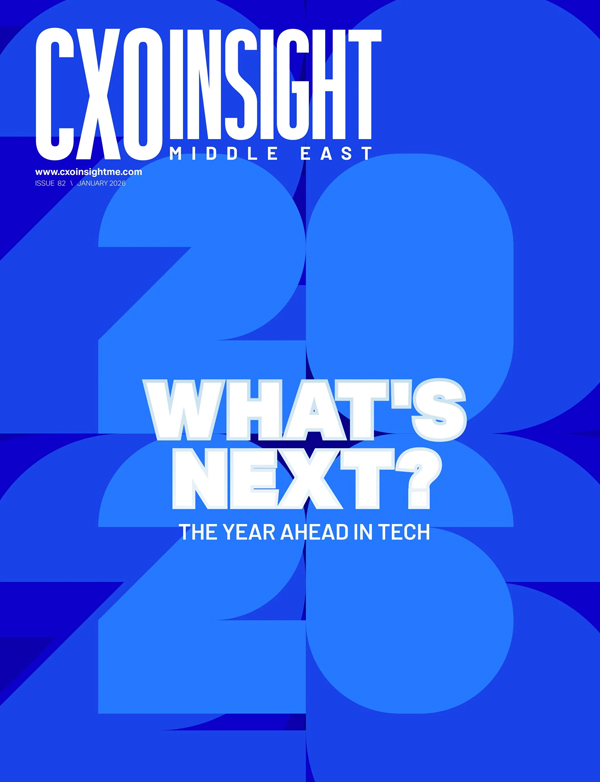Saudi Arabia and the UAE are making significant investments in AI and data sovereignty. How is Dell aligning with these national agendas, and how do your recent announcements support these objectives?
We’re very involved in what’s happening across the region, including the recent high-profile visits and discussions. While I can’t disclose specific deal details yet, I can say we are closely engaged, and some major agreements are already in motion.
The AI momentum in Saudi Arabia and the UAE is exceptional. For example, the UAE is now the third-ranked country globally for AI, after the US and China. This isn’t a reactive movement—it’s part of a well-though out strategy. The UAE was the first country in the world to appoint a Minister of AI and that shows long-term vision and commitment to AI leadership.
AI follows energy, and the Gulf region has energy. That naturally makes us a central hub for AI. At Dell, we’ve had a strong presence in Saudi and the UAE for years, holding leading market share and maintaining close relationships with both governments and major players like G42.
What kind of traction are you seeing for Dell’s AI Factory in the region, and which sectors are driving adoption?
This Middle East is one of Dell’s best-performing markets globally for AI Factory adoption. Over the past year, hundreds of customers across the Middle East have embraced the platform.
There’s strong urgency—everyone wants to implement AI, but many don’t know how. That’s where we come in, we help them identify the right use cases and guide them through meaningful deployment.
Government bodies, the banking sector, and logistics are leading adoption. Digital twin technology is a particularly strong use case—allowing organisations to simulate operations, speed up time to market, and sharpen competitiveness.
Looking at the region overall, are there countries that are lagging in their AI journey? What are the main challenges slowing adoption?
The UAE and Saudi Arabia are clearly leading the region’s AI journey, while other countries are progressing at different stages. But we need to recognise that implementing AI is still expensive—not just financially, but in terms of talent as well. Talent availability is as important as funding when it comes to deploying AI successfully, and it remains a key challenge across the board.
We’re also at a turning point. Right now, humans perform tasks with machine assistance. But very soon, machines will be doing the work with human guidance. That shift will demand a completely different kind of human skill set.
That’s why I believe initiatives like the UAE’s recent move to integrate AI into the national curriculum from kindergarten are so important. These are vital steps to ensure the next generation is prepared for what the future demands.
How do you support organisations that struggle with implementing AI meaningfully?
At Dell, we never do anything just for the sake of it. Our mission is to enhance human progress, and we live by that. Once we understand a customer’s business and identify the right use cases, implementation becomes the easiest part. A bank, a government, a hospital, or a university—they all require different approaches. That’s why we take the time to study their environment and ensure AI is applied with purpose, not just as a checkbox.
Ethical considerations are also among the most important aspects to address in the AI conversation. The truth is, any rules you create for AI today might be irrelevant within a year. The technology is evolving so quickly that rigid control could actually slow down meaningful development. Globally, there are two camps—one that believes in tightly regulating AI and its ethics, and another that supports unleashing it and adapting as it progresses. Personally, I lean more towards the latter. I believe in unleashing AI—but doing so responsibly.
And this is where data becomes absolutely essential. Responsible AI doesn’t start with regulation—it starts with the data you feed into it. If the data is unclean, unstructured, or misaligned with your values, then the outcomes will be flawed, no matter how ethical your intentions.
How do you see the future of AI evolving?
Things are moving incredibly fast. We’ve already seen the evolution from traditional AI to generative AI, and now to agentic AI. Not long ago, AI could assist you in writing a CV. Today, agentic AI can go far beyond that—it can write the CV, apply for the job, schedule the interview, and even coach you on how to prepare. AI is becoming an autonomous agent that can carry out entire tasks on your behalf.
People are already talking about what comes next—Organoid Intelligence, or OI—which involves combining silicon with live human brain cells. That might sound like science fiction, but it’s not. The first prototypes already exist, and brain cells have been donated for this kind of research. It’s a new class of computing that blends biological cognition with machine processing. That kind of advancement could be incredibly powerful—and yes, it’s a little scary.
But I’ve learned that when something scares you, the best thing you can do is become part of it. You can’t stop these advancements, so it’s better to engage, contribute, and help shape the future.
What is Dell’s long-term vision for the region?
Our vision is to help the Gulf stay at the forefront of the digital economy. This region has the energy, the data, and the financial strength. But more importantly, our focus is to ensure that our customers are successful – when they succeed, we succeed.
If I walk into a C-level meeting and talk only about infrastructure, it’s a five-minute conversation. But when I talk about how our technology can future-proof their business, that’s where the real dialogue happens.
Change is inevitable—and history proves it. Around 90 percent of the Fortune 500 companies from 1980 no longer exist today, simply because they failed to read the future and adapt in time. At Dell Technologies, our mission is to help organisations avoid that fate. We’re committed to helping them become part of the future, so they can evolve and stay competitive.










Discussion about this post